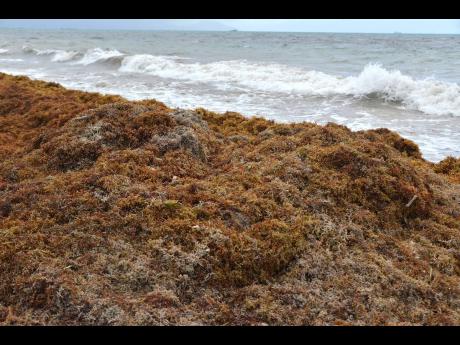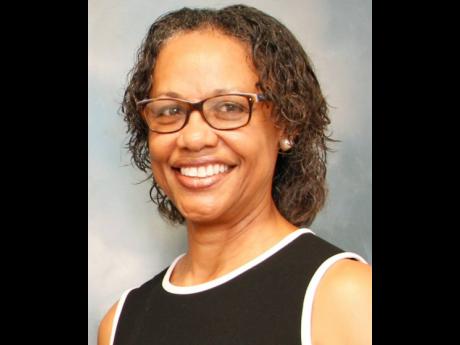Earth Today | UWI zeroes in on threats to Caribbean coastlines
THE UNIVERSITY of the West Indies (UWI) will today put prevailing threats to Caribbean coastlines under the microscope, with a look at the connection between mangroves, microplastics and sargassum seaweed.
To do so, they are utilising ‘The Professor Speaks’ lecture series – coordinated by the Faculty of Science and Technology (FST) – which will today be headlined by Dr Mona Webber, professor of marine biology and director of the Centre for Marine Sciences at the UWI.
“The connection between mangroves, microplastics and sargassum is our research in these areas which indicate and highlight the fact that our coastlines and oceans are in peril. Through the increase in solid waste (plastic) pollution, we are destroying our mangroves and producing microplastics, which more easily move throughout coastal and ocean systems and spread contamination at several levels,” Webber told The Gleaner yesterday, in a prelude to what is to be covered at the 2 p.m. virtual session.
It has, she maintained, never been more important to take stock of these issues, given the reality of a changing climate that brings with it impacts such as sea level rise, increases in sea surface temperatures, and coastal erosion. These are impacts that could cause the loss of lives and livelihoods.
“The addition of excess nutrients to the ocean (untreated sewage and agricultural run-off), which when combined with climate change triggers can cause issues like the excessive blooming of sargassum, [means that] there is urgent need to find solutions. Some of the issues like sargassum could be part of the solution,” explained Webber, who is also the James Moss-Solomon Sr chair in environmental management at the UWI.
“However, we need to act. We need more multi-disciplinary research, and we need partnerships to ‘build the bridge from science to action’. It is important to have this discussion now because we need to act now – before it is too late to save some of these systems, and to make use of the opportunities, like sargassum, that are now before us,” she added.
Potential fuel source
Among the recent opportunities to emerge with respect of sargassum is its potential use as a fuel source to power transportation while also helping, at least some islands, to address the high cost of imported fossil fuel for cars, climate change, and the hazards of increased influxes of sargassum on local beaches.
This is informed by recent research supported by the Inter-American Development Bank, titled ‘Environmental Evidence on the use of Biomethane from Rum Distillery Waste and Sargassum seaweed as an Alternative Fuel for Transportation in Barbados’.
The research found, among other things, that “by relying on experimental evidence, it shows that biomethane emanating from the combination of sargassum seaweed that is found on the seashores of the country with waste water from rum distillery production, can be used to produce an alternative transportation fuel”.
The Professor Speaks lecture series provides an opportunity for faculty, at the rank of professor, to speak on national and regional environmental challenges.
“The lectures are geared at being informative, engaging, and understandable, with topics that range from the novel to the controversial. Importantly, the series highlights the often overlooked but important role that science is playing in national development,” noted Dr Curtis Busby-Earl, associate dean for graduate studies and research in the FST.
Today’s lecture, he said, is especially important as it “addresses significant environmental challenges facing our country and region”.
“It links them to the preservation of a natural resource, which is critical for coastal livelihoods and climate protection. It is a timely reminder that even amidst the pandemic, environmental issues cannot and should not be ignored,” he added.


